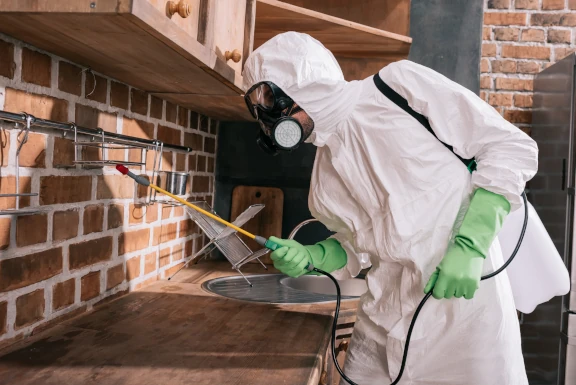Dealing with rodents at home can be stressful and frustrating. These unwelcome guests not only cause damage to your property but also pose significant health risks. Ensuring that your home remains rodent-free requires a proactive approach and the implementation of effective strategies. This blog post will explore the top tips for achieving the best results in rodent control at home, ensuring your living spaces remain healthy and secure.
From understanding rodent behavior to employing practical removal techniques, each key aspect discussed here is vital. We will delve into preventative measures, correct sanitation habits, the benefits of professional extermination services, and more. Whether you’re dealing with an ongoing infestation or aiming to prevent one, these insights will arm you with the knowledge needed to tackle rodent problems head-on.
Contents
Identification and Early Detection
The first crucial step in effective rodent control is identifying the presence of rodents early and accurately. Recognizing signs such as droppings, gnaw marks, and unusual pet behavior can help catch an infestation before it escalates. Regularly inspect hidden areas where rodents are likely to hide such as basements, attics, and behind appliances. Early detection saves time and resources in managing an infestation. For best results in identification and treatment strategies, consider consulting Sydney’s Top Rodent Control Services.
Failing to identify an infestation early can lead to severe consequences including structural damage and health problems from diseases rodents carry. Therefore, make routine inspections part of your home maintenance checklist.
Proper Sanitation Practices
Maintaining cleanliness in your home is an essential deterrent against rodents. Ensure that food is stored in sealed containers and countertops are clean without crumbs or food residues. Rodents are attracted to food sources and reducing these can significantly lower the chances of infestation. Pay special attention to garbage management; using bins with tight-fitting lids will help prevent rodents from accessing food scraps.
Regularly dispose of garbage and declutter spaces such as garages and attics where rodents might nest. Reducing clutter not only removes potential nesting spots but also allows you to spot signs of an infestation more quickly.
Exclusion Techniques
To prevent rodents from entering your home, implement effective exclusion methods. Sealing openings more than a quarter-inch wide, securing gaps around doors, windows, and utility pipes are critical steps. Materials such as steel wool, metal sheeting, or caulk should be used to close entry points effectively since rodents can easily gnaw through softer materials like rubber or wood.
Routinely check for cracks or holes in your home’s exterior; remember that some rodents can squeeze through tiny spaces about the size of a dime! Regular maintenance checks help ensure that any new or previously missed openings are secured.
Use of Traps and Baits
Trapping is a safe and effective method to control rodent populations when used correctly. Various traps including snap traps, electronic traps, and live catch traps can be used depending on the severity of the infestation and personal preference. Position traps strategically near identified active areas but ensure they are out of reach of children and pets.
Baiting might also be necessary for larger or more resilient infestations; however, caution should be exercised since poison baits pose risks if misused. Consulting with a pest control professional can optimize effectiveness while maintaining safety in deploying these strategies.
Seeking Professional Help
Sometimes DIY methods just aren’t enough to manage a severe rodent problem. Professional pest controllers are equipped with advanced tools and have in-depth knowledge about different types of rodents and their behaviors. Hiring professionals can result in more thorough eradication methods tailored to your specific situation.
Professional exterminators also offer preventative services after treating an infestation, ensuring that your home stays rodent-free for longer periods. They can also provide invaluable advice on long-term prevention techniques tailored specifically to your living environment.
In conclusion, effective rodent control involves a mix of expert knowledge, timely action, and strategic execution. By following these top tips—from early detection and sanitation to professional extermination—you’ll improve your chances of maintaining a rodent-free home significantly. Remember that prevention is always better than cure; regular inspection and maintenance of your property are just as crucial as any direct action against rodents themselves.
Ultimately, understanding that each home will have unique challenges is essential when applying these strategies. Flexibility and vigilance are key in adapting practices that consistently keep your living spaces healthy and protected from pests.

